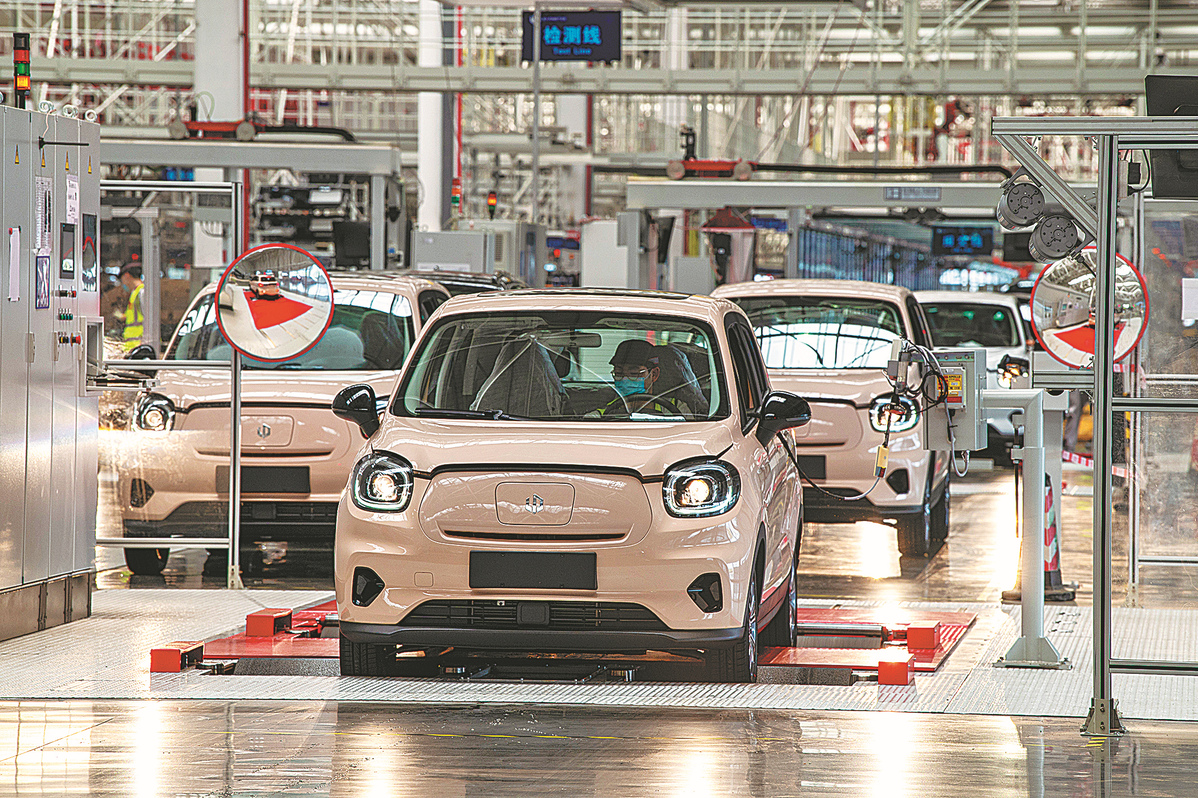Europe now a popular destination for Chinese EVs


Europe, the birthplace of modern vehicles, is the most popular destination for Chinese electric car makers, as they step up efforts to go overseas, said experts and diplomats at the China International Fair for Trade in Services.
China's vehicle exports hit 2 million in 2021, according to statistics from the China Association of Automobile Manufacturers.
Of them, around 500,000 units were passenger new energy vehicles, and half of them were shipped to European countries, said Zhao Zizhong, vice-president of Economic Daily.
"This was unimaginable in the age of gasoline vehicles," said Zhao at the 2022 Automotive Capital Market Forum held on Thursday.
The forum was co-organized by Securities Daily and the China-Europe Association for Technical and Economic Cooperation, as part of the China International Fair for Trade in Services held from Aug 31 to Sept 5 in Beijing.
Chen Jingyue, executive vice-president and secretary-general of the China-Europe Association for Technical and Economic Cooperation, said China is growing into an automotive power in the NEV segment, due to the country's competitive edge in electric motors, batteries and other key parts.
She said the size of European markets and local policies on phasing out gasoline vehicles are presenting unprecedented opportunities for Chinese carmakers.
Last year, NEV sales in Europe reached 2.3 million units, accounting for 19 percent of total vehicle sales in the year.
In July, Europe proposed to sell only new cars and vans with zero emissions from 2035.
"We should seize the opportunity and step up our efforts to build a long-term advantage in EV exports," said Chen.
Peter Deak, a diplomat of economy and trade at the Hungarian embassy in Beijing, said the best time for Chinese EV companies to go to Europe is "now".
Deak expects around 40 percent to 50 percent of new vehicles sold in 2030 in Europe to be NEVs, which means a market of 8 to 9 million units a year.
But considering that it usually takes three to five years for locals to accept new marques, he said Chinese companies should go there as soon as possible.
A growing number of Chinese companies are making their inroads into Europe.
CATL is planning to invest 7.34 billion euros ($7.31 billion) to build a 100 gigawatt-hour battery plant in Debrecen in eastern Hungary.
Once the project is approved, construction in Debrecen, which is in the heart of Europe, will begin later this year.
The plant will be close to its key customers, including Mercedes-Benz, BMW and Volkswagen, enabling it to better cope with battery demand from the European market.
Chinese carmaker Nio's plant in Hungary is expected to become operational this month, producing power products including battery-swapping stations to be installed in Europe.
Nio entered the European market in 2021, with Norway as its first stop. In the second half this year, Nio will expand its products and integrated services to Germany, the Netherlands, Sweden and Denmark, the company said.
Gao Peng, a business official at the Norwegian embassy in Beijing, said Norway plans to ban sales of fossil-fuel vehicles by 2025 so the country has a big demand for electric vehicles.
"So Norway is like a gateway to Europe for Chinese EV makers," said Gao.
But he added that a long-term strategy is crucial for them to get established overseas.
"It is easy to come but it is not easy to survive, but in the long run the prospects are bright," Gao said.




































